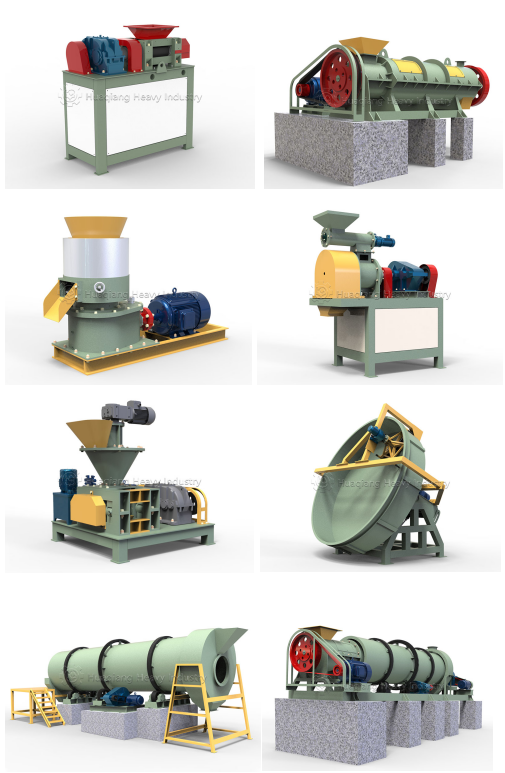Basic Concepts of Granulation Technology
Granulators are core equipment in modern fertilizer production, with the primary function of converting powdered, fine-particle, or slurry raw materials into uniform, stable granular products with defined size, shape, and strength. In fertilizer granulation processes, this step is decisive for improving product quality and usage efficiency.
Improving Material Handling and Storage Performance
Powdered fertilizers are prone to dust, caking, or ingredient separation during transportation and storage. Through the rotary drum granulator used in the NPK manufacturing process, the produced granular products effectively reduce dust pollution, prevent clumping, and maintain ingredient consistency. Granular fertilizers have better flowability, making them more convenient in conveying, metering, and storage, whether through conveyor belts, pipelines, or in silos or bags.
Enhancing Product Performance and Application Effectiveness
In fertilizer production, granules ensure uniform nutrient distribution, improve slow-release efficiency, and facilitate mechanical application. Fertilizer granules compaction technology further enhances the mechanical strength of granules, maintaining their integrity during transportation and application. The organic fertilizer granulator is specifically designed to process organic raw materials, producing granules that maintain nutrients while improving soil structure. These fertilizer production machines meet the specific needs of different crops through precise control of particle size, from small granules for seedlings to larger ones for field crops.

Optimizing Production Processes and Formulations
Granulation processes allow uniform mixing of multiple raw materials, ensuring full integration of various nutrient elements during NPK fertilizer granulation. The drum granulator, as a key fertilizer production machine, promotes material agglomeration through its unique rotating mechanism to form uniform granules. The fertilizer compaction machine compresses materials into high-density granules through mechanical pressure, particularly suitable for certain special formulations. The refined control of these fertilizer granulation processes enables manufacturers to flexibly adjust product specifications according to market demands.
Reducing Waste and Production Costs
Granular fertilizers minimize the dust loss common in powdered materials and improve product utilization. Granules are not easily washed away by rainwater, ensuring nutrients are fully absorbed by crops. Meanwhile, granular products simplify downstream processing steps such as packaging and transportation, and reduce equipment wear caused by abrasive powders. Both NPK fertilizer granulators and organic fertilizer granulators reduce overall operating costs while improving production efficiency.
Technological Development and Innovation
With the advancement of agricultural technology, granulation technology continues to innovate. Modern rotary drum granulators integrate automated control systems capable of real-time monitoring and adjustment of process parameters. Fertilizer compaction technology produces more competitive products through improved mold design and pressure control. These technological innovations not only enhance product quality but also promote the entire fertilizer industry toward greater efficiency and environmental friendliness.
Conclusion
Granulators, as core components of fertilizer production machines, play an irreplaceable role in modern agriculture by enhancing product performance, streamlining production workflows, and cutting operating costs—delivering high-quality fertilizer granules that underpin global food security. Among key equipment, rotary drum granulators and drum granulators excel in efficient granulation, while roller press granulator production lines and fertilizer compactors specialize in fertilizer granules compaction, a critical step that boosts product density and storage stability. These fertilizer compaction machines integrate seamlessly into npk production lines, where they optimize the npk manufacturing process by ensuring uniform particle size and nutrient distribution.
Advanced npk fertilizer production technology leverages these machines to refine every stage of the process, from raw material blending to final compaction. The synergy between rotary drum granulators, roller press granulator production lines, and fertilizer compactors not only elevates product quality but also enhances production scalability, meeting the growing demand for high-performance NPK fertilizers. As technological innovation accelerates, granulation processes—including those centered on drum granulators and npk manufacturing—will continue to evolve, integrating smarter controls and more sustainable practices. This evolution of fertilizer production machines and npk fertilizer production technology will further strengthen the reliability of npk production lines, driving greater efficiency in fertilizer compaction and granulation, and ultimately making more profound contributions to global food security and sustainable agricultural development.